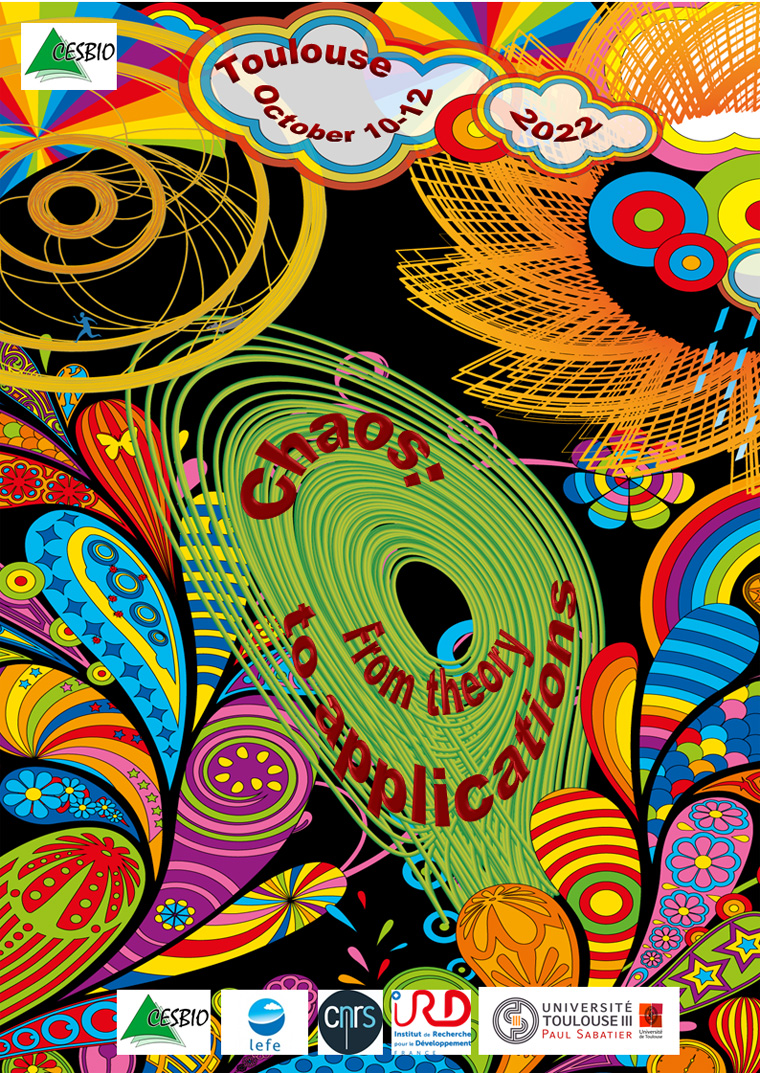Invitation to participate to the conference
Ottochaos: From theoretical to observational chaos in the real world
for the 80th birthday++ of Otto E. Rössler
We are pleased to announce the forthcoming conference OttoChaos that will take place from October 10th to 12th in Toulouse, to celebrate the 80th birthday++ of Otto E. Rössler.
Otto E. Rössler completed his studies in medicine but was never a physician. He spent a post-doc with Konrad Lorenz about socio-biology and cognitive science. He continued with a second post-doc with Robert Rosen with whom he learned to reproduce observed dynamics with differential equations. He then started as an academic by teaching computer programming and computed numerical solutions to the differential equations governing chemical reactions. Otto submitted his first paper on chaos in 1976. The Rössler system quickly became one of the prototypes on which the paradigm of chaos theory is constructed. He also introduced hyperchaos and suggested a classification of chaotic attractors. Otto E. Rössler investigated applications of chaos in various fields: chemistry, heart rhythm, biology, electronics, astrophysics, fluid mechanics…
In order to celebrate his contribution to chaos theory for his 80th birthday, this forthcoming conference is devoted to enlightening how chaotic behaviors help to understand the reality of the world in its complexity. Contributions should try to show how the concepts of state space, attractor, first-return maps, Poincaré sections, bifurcations, etc. allow for better views of the possible dynamics produced by simple as well as complex systems. Contributions can be either theoretical, numerical, experimental, observational or historical.
We hope that you will be able to contribute to this exciting meeting.
Scientific presentation
More than one century ago, Henri Poincaré discovered the sensitivity to initial conditions in "simple" system like the three-body problems. Mastering the analysis of solution in the state space, he introduced many concepts which are used today to investigate chaotic attractors. In 1963, Edward Lorenz showed how he was mastering all these techniques for showing that a simple system describing the Rayleigh-Bénard convection was sensitive to initial conditions and, consequently, non predictable at long term. In 1976, Otto E. Rössler, challenged by Art Winfree, discovered an even simpler system which was producing chaotic attractor. This system became one of the two most quoted chaotic systems (with the Lorenz one).
Otto then discovered hyperchaos, and produced many different types (topologically inequivalent) of chaotic attractors. He also spread the importance of chaotic behavior in various fields as chemistry, biology, psychology... This workshop is organized in his honor, for celebrating his 80th birthday. This will be the opportunity to have some recollections about these 1970s, and to show, 40 years later, that this chaos theory maturated and is today applied to various fields, including medecine, ecology, epidemiology, earth sciences and others.

